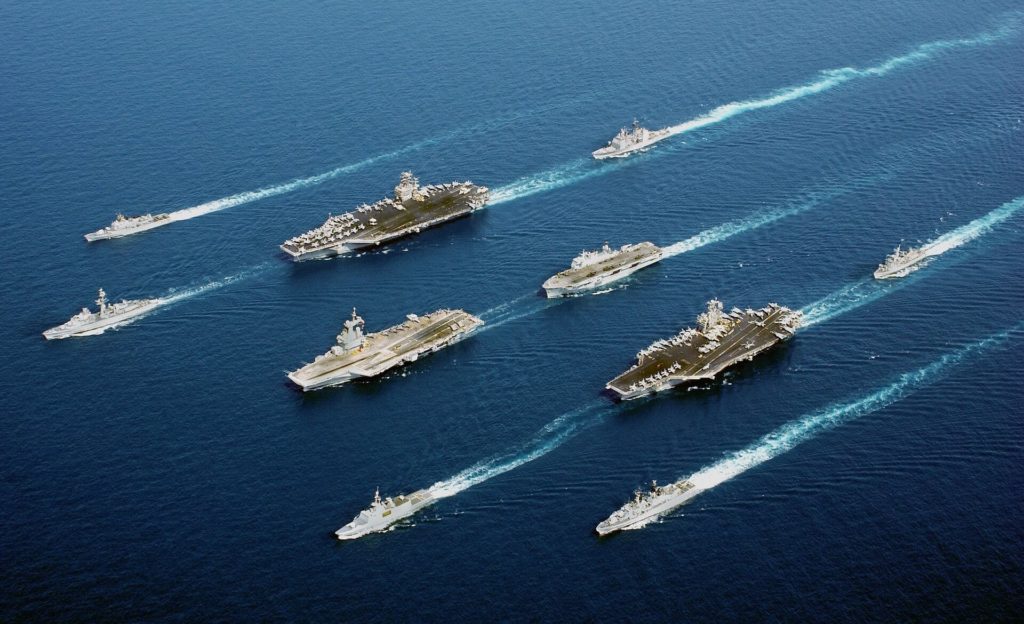“Blue Water” Navy Vietnam Veterans Act Signed Into Law

CCK Law: Our Vital Role in Veterans Law
“Blue Water” Navy Vietnam Veterans Act Signed Into Law
On June 26, 2019, President Trump signed the Blue Water Navy Vietnam Veterans Act into law. This law extends the presumption of exposure to herbicides to veterans who served within twelve nautical miles seaward of the demarcation line of Vietnam, and extends the time period for the presumption for veterans who served along the Korean demilitarized zone to September 1, 1967 and August 31, 1971. Additionally, the law provides access to health care, vocational training, rehabilitation, and monetary allowance to children with spina bifida of certain Thailand veterans who served during the Vietnam era.
The History of Blue Water Vietnam Veterans Act
The Agent Orange Act was passed on February 6, 1991. This legislation codified a presumption of exposure to herbicides for veterans who served in Vietnam during the war and a presumption of service connection for certain diseases associated with that exposure. It also outlined the procedure by which VA must adhere when adding new conditions to the presumptive list. On July 23, 1997, VA put forth an interpretation of service “in Vietnam” at which time it deemed service in offshore waters did not qualify as service in Vietnam. In February 2002, VA added a requirement for veterans to prove they set foot on the continental landmass of Vietnam or entered an inland waterway to be eligible for the presumption of exposure to herbicides, now referred to as “boots-on-the-ground.”
In August 2006, the Court of Appeals for Veterans Claims (CAVC) issued a decision in Haas v. Peake. VA regulation for presumptive service connection for herbicide exposure must include veterans who served in Vietnam’s offshore waters, also known as “Blue Water veterans.” The main argument in favor of Blue Water veterans in this case was that Congress used the term “Republic of Vietnam” in the legislation, and per international law, a country’s territory is recognized as extending 12 miles off its coast. However, in May 2008, the Federal Circuit overturned the CAVC’s decision in Haas.
Between 2015 and 2016, Mr. Alfred Procopio, a Blue Water Navy veteran who filed claims for service connection for prostate cancer and diabetes mellitus due to Agent Orange exposure, was denied twice at the Board and appealed his case to the CAVC. The Court agreed with the Board’s decision, finding that the Board reasonably concluded that Mr. Procopio was not exposed to Agent Orange and therefore that presumptive service connection was not warranted. Mr. Procopio appeals the CAVC’s decision.
While Mr. Procopio’s case was ongoing, in 2018, Congress introduced new legislation to expand eligibility of the herbicide exposure presumption to Blue Water Navy veterans. On May 7, 2018, the Blue Water Navy Vietnam Veterans Act of 2017 passed in the House Committee of Veterans’ Affairs (HVAC); and in June 2018, the Act passed in the full House of Representatives. However, it stalled in the Senate in August 2018.
On January 29, 2019, the Federal Circuit issued a favorable decision in Mr. Procopio’s case, thus overturning the previous Federal Circuit decision in Hass v. Peake. On May 14, 2019, the House of Representatives passed the Blue Water Navy Vietnam Veterans Act, and on June 12, 2019, the Senate passed the Act in a unanimous vote. President Trump then signed the bill into law.
Significance of the Blue Water Navy Vietnam Veterans Act for all Veterans
The Blue Water Navy Vietnam Veterans Act is estimated to impact around 90,000 Vietnam-era veterans. These veterans have been fighting for years for recognition by VA that their military service exposed them to herbicides and caused many of them to develop serious health conditions. This law acknowledges the service of these veterans and renders them eligible for presumptive exposure, and thus presumptive service connection for certain medical conditions.
Implementation of the Blue Water Veterans Law
Until we see the implementation of this law, it is hard to unknown whether Blue Water veterans will receive retroactive pay and how far back that pay will go. The Congressional Budget Office estimates cost of implementing this law could total $1.8 billion in this fiscal year alone but also $5.7 billion over the next 10 years.
On July 1, 2019, VA Secretary Wilkie has issued a stay on all cases affected by this law until at least January 1, 2020. This means that Blue Water cases currently pending will not be adjudicated until the stay is lifted, nor will any claims filed before the stay is lifted.
About the Author
Share this Post

